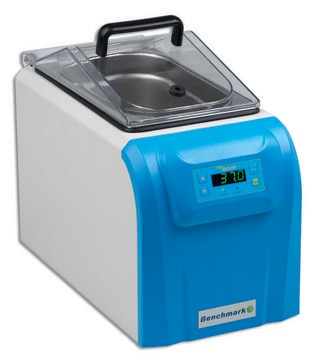920169
Tin (IV) oxide nanosheets
Sinónimos:
SnO2 nanosheet
Iniciar sesiónpara Ver la Fijación de precios por contrato y de la organización
About This Item
Productos recomendados
Application
Tin(IV) oxide (SnO2) nanosheets are an attractive choice for creating stable and high-performance perovskite solar cells due to its wide bandgap, increased electron mobility, and high stability. SnO2 has a higher bandgap (at 3.8 eV), and the conduction band edge exhibits a 300 mV positive shift compared to TiO2, which results in lower photocatalytic activity and higher device stability. The charge mobility of SnO2 is almost two orders of magnitude higher than that of TiO2 and has a lower trap density than TiO2. Finally, SnO2 nanosheets materials have an advantage over typical TiO2 materials in flexible and low-temperature applications.
signalword
Danger
Hazard Classifications
Acute Tox. 3 Dermal - Acute Tox. 3 Inhalation - Acute Tox. 3 Oral - Eye Dam. 1 - Flam. Liq. 2 - Skin Corr. 1B - STOT SE 1
target_organs
Eyes,Central nervous system
Storage Class
3 - Flammable liquids
wgk_germany
WGK 2
flash_point_f
49.5 °F
flash_point_c
9.7 °C
Certificados de análisis (COA)
Busque Certificados de análisis (COA) introduciendo el número de lote del producto. Los números de lote se encuentran en la etiqueta del producto después de las palabras «Lot» o «Batch»
¿Ya tiene este producto?
Encuentre la documentación para los productos que ha comprado recientemente en la Biblioteca de documentos.
Takumi Kinoshita et al.
Nature communications, 6, 8834-8834 (2015-11-06)
The extension of the light absorption of photovoltaics into the near-infrared region is important to increase the energy conversion efficiency. Although the progress of the lead halide perovskite solar cells is remarkable, and high conversion efficiency of >20% has been
Low-temperature SnO2-based electron selective contact for efficient and stable perovskite solar cells.
Song J, et al.
Journal of Material Chemistry A, 3, 10837-10844 (2015)
Mesoporous SnO2 nanoparticle films as electrontransporting material in perovskite solar cells
Li Y, et al.
Royal Society of Chemistry Advances, 5, 28424-28424 (2015)
Nuestro equipo de científicos tiene experiencia en todas las áreas de investigación: Ciencias de la vida, Ciencia de los materiales, Síntesis química, Cromatografía, Analítica y muchas otras.
Póngase en contacto con el Servicio técnico







